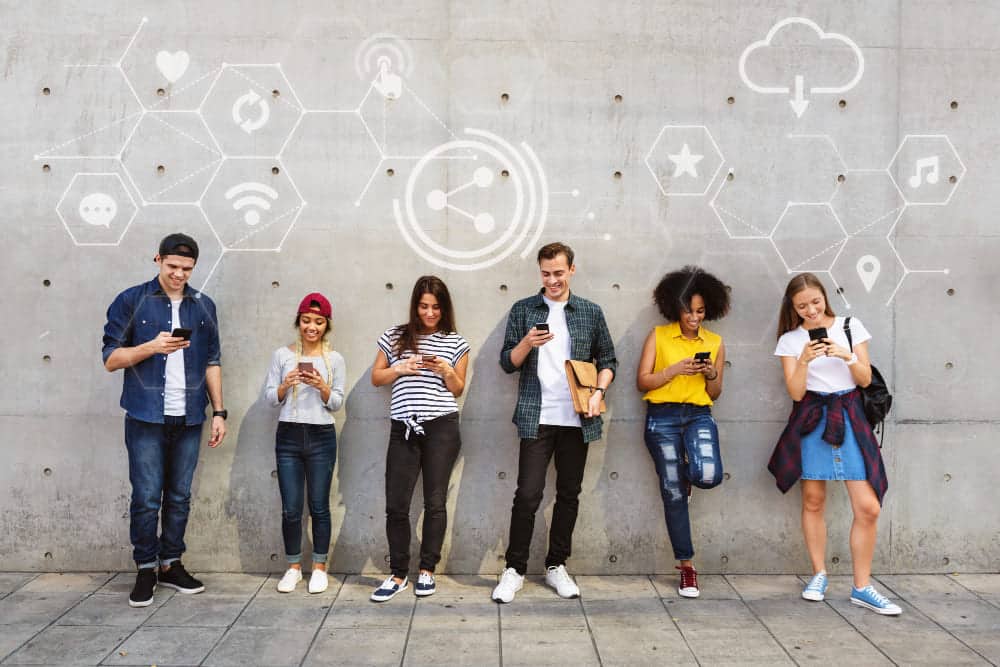Do you spend more time online than in the real world? You’re not alone. The internet isn’t just a side quest anymore – it’s the main game. Digital sociology investigates this brave new world to understand how technology is reshaping our interactions, our identities, and even our societies and at the heart of it all i.e., Online communities. But are these virtual tribes the future of social connection, or are we just fooling ourselves?
Arkapriya Gangopadhyay, an academician in sociology, is breaking down the concept of digital sociology.
What is Digital Sociology?
Digital sociology is the study of how digital technology – like social media, AI, and big data – affects human behavior, society, and culture. It explores how people interact online, how digital platforms shape opinions, and how technology influences everything from relationships to politics.
For example, digital sociology looks at how social media impacts mental health, how AI-driven algorithms influence job hiring, or how big data is used for marketing. It helps us understand the digital world’s impact on our daily lives and society.
The rise of digital sociology
Once upon a time, sociology was all about cities, class struggles, and social movements. But today, the digital world has rewritten the rules – Twitter feuds, viral TikTok trends, AI influencers, and the ever-elusive algorithm dictate our interactions. Therefore, digital sociology looks at:
- The social media effect – Are we curating our lives or creating new realities? Platforms like Instagram and TikTok shape our perception of the world, blurring the lines between authenticity and performance. What happens when our real selves can’t keep up with our online personas?
- Algorithmic overlords – How machine learning shapes what we see and believe. The algorithm decides what content gets pushed into our feeds, influencing our moods, opinions, and even purchasing decisions. But are we shaping the algorithm, or is it shaping us?
- The power (and pitfalls) of digital activism – Can hashtags really change the world? From #MeToo to #BlackLivesMatter, online activism has mobilized millions. But is it a genuine driver of change, or just feel-good slacktivism?
- The digital divide – Who has access to the internet, and who’s left out of the conversation? Digital inequality creates gaps in education, job opportunities, and political participation. Is the internet truly democratic, or does it deepen existing divides?
- Surveillance capitalism – How our personal data is the hottest commodity online. Every click, search, and like feeds into a system that monetizes our digital footprints. Yet, how often do we truly grasp what we’re surrendering with a single click?
You may be interested to know more about the sociological implications of AI and automation.
Welcome to the club
Online communities are the town squares of the internet—minus the pigeons and street performers. From niche forums to massive fandoms, online communities take many forms such as:
- Fandoms & obsessions: Gamers, K-pop stans, true crime junkies—there’s a space for every passion. These communities create deep connections, but they also spark intense rivalries. Ever seen a fandom war? It’s not pretty.
- Support networks: From mental health forums to grief support groups, digital spaces can be lifelines. People find comfort in anonymous conversations, sharing experiences they might never discuss in real life.
- Activist hubs: Whether it’s fighting climate change or advocating for social justice, online movements are shaking up the status quo. But activism online can also be performative—how do we separate genuine commitment from virtue signaling?
- Professional networks: LinkedIn: where we pretend, we have our lives together. Networking has never been easier, but has it become more about clout than genuine connections?
- Niche communities: Want to discuss medieval battle tactics or rare houseplants? There’s a forum for that. The internet allows for micro-communities to thrive, proving that no interest is too obscure.
These communities are built on shared interests, but they also create new forms of identity. Who we are online might not be who we are in real life. Some people find their true selves in digital spaces, while others craft an idealized version of themselves that only exists on-screen. Are we building connections, or just avatars?
Also read: A complete guide to become a sociologist in India
The good, the bad, and the deeply concerning
But let’s be real: not everything about online communities is sunshine and memes. For every wholesome subreddit, there’s a dark corner of the internet where things get weird.
- Echo chambers & tribal wars: Algorithms feed us more of what we already believe. Are we engaging in discussions or just yelling into a void? The internet is a battleground of ideas, but sometimes it feels more like an echo chamber.
- Big brother is watching: Every click, like, and share is data. Who owns it? Who’s profiting? (Spoiler: not you.) Tech companies track our behavior, turning our online habits into profit margins. Critics allege that governments are snooping into social media activities of individuals to ensure public safety and national security.
- Cyberbullies & trolls: The internet can be a breeding ground for toxicity, and blocking isn’t always enough. From cancel culture to anonymous hate, online spaces aren’t always safe.
- Reality vs. the filtered version: Are we presenting our real selves or just our best angles? Social media creates unrealistic expectations, leading to comparison culture and mental health struggles.
- Cancel culture & digital shaming: The internet never forgets, but should it? Public callouts hold people accountable, but sometimes they spiral into online mob justice.
At its best, the internet connects people, amplifies voices, and creates space for important conversations. At its worst, it enables misinformation, harassment, and the exploitation of personal data. So where do we go from here?
What’s next?
We’re just getting started. The future of online communities is already being shaped by:
- The metaverse & virtual reality: Will we soon hang out in digital worlds more than physical ones? With VR tech evolving, we might be closer than ever to living in a Ready Player One-style reality.
- AI-generated content & deepfakes: When everything can be faked, what’s real? AI is changing how we interact online, from chatbots to eerily realistic deepfake videos.
- Digital well-being: Can we unplug, or are we too far gone? As screen time skyrockets, people are searching for balance through digital detoxes and mindfulness apps.
- Decentralized social media: Can platforms like Mastodon and Bluesky challenge corporate control? Alternative platforms are emerging, aiming to put power back in the hands of users.
- Regulation & ethics: Should governments step in to control online behaviour, or does that kill the internet’s free spirit? Striking a balance between free speech and responsible digital governance is one of the biggest challenges ahead.
If you like to enroll in a sociology program, check out online MA in Sociology offered by Sikkim Manipal University.
Final thoughts: Are we more connected or more alone?
Online communities have the power to bring people together like never before – but they also raise big questions about identity, privacy, and the nature of human connection. Are online communities making us more engaged citizens—or just expert scrollers?
As we move through this digital world, it’s worth thinking about: are we in charge of technology, or is it steering us? And if the internet is going to be the future, how do we make sure it’s a place we actually want to be in?
Prepare for your next career milestone with us













